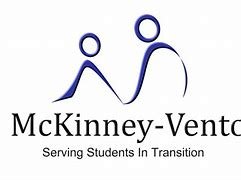
Oke, sini aku buatkan draftnya. Harap diingat, artikel ini bertujuan untuk memberikan informasi dan bukan untuk saran hukum. Konsultasikan dengan profesional hukum untuk mendapat panduan yang sesuai kebutuhan kamu, ya.
Undocumented Children & The McKinney-Vento Act: A Critical Look
The McKinney-Vento Homeless Assistance Act aims to provide essential support to children experiencing homelessness across the U.S., offering shelter, education, and other critical resources. But does this act extend its protection to undocumented children? This is a crucial question, given the rising number of undocumented children in the country & the inherent challenges they face, particularly regarding accessing essential services.
While the McKinney-Vento Act makes no explicit distinction based on immigration status, its implementation can pose significant barriers to undocumented children. These obstacles range from the lack of documentation required to prove homelessness, to the fear of disclosing their immigration status, leading to a potential risk of deportation for themselves or their families.
The Act’s goal of providing stability & educational opportunities to homeless youth clashes with the complex reality faced by undocumented children, leaving them in a precarious position. This gap in coverage creates a ripple effect, negatively impacting their well-being, education, and access to crucial services.
Related Post : title vii of the civil rights act of 1964 quizlet
Further complicating matters is the fact that undocumented children & families may not fully understand the McKinney-Vento Act, its provisions, or their eligibility. Language barriers & cultural differences further compound these challenges, leading to missed opportunities for assistance & support.
This article dives into the crucial question of whether undocumented children are covered under the McKinney-Vento Act, examining the legislative framework, existing practices, and the vital need for solutions that ensure every child, regardless of their immigration status, has access to the resources they deserve. We’ll explore how advocates, policymakers, and communities can work together to bridge this gap & create a more just & equitable system for all children experiencing homelessness.
The McKinney-Vento Act: A Lifeline for Homeless Children, But Not Undocumented Ones
The McKinney-Vento Act is a landmark piece of legislation that has offerd a vital lifeline for millions of homeless children across the United States. However, a significant gap exists within the Act’s provisions, leaving a vulnerable group of children without the crucial support they need: undocumented children.
What is the McKinney-Vento Act?
The McKinney-Vento Homeless Assistance Act was signed into law in 1987, aiming to help homeless individuals and families across the US. It’s not just about providing shelter; it’s about ensuring access to education for children experiencing homelessness. This means ensuring they have a stable school environment, access to educational resources, and the support they need to succeed academically.
A Brief History:
The McKinney-Vento Act was a response to the growing issue of homelessness in the US, particularly the impact it had on children’s education. It recognized that homeless children face unique challenges, such as frequent moves, lack of access to stable housing, and limited access to healthcare and other essential services.
The Act's Purpose:
The McKinney-Vento Act focuses on minimizing the disruptions to a homeless child’s education. It seeks to ensure that these children have access to the same educational opportunities as their housed peers.
Key Provisions:
The Act offers funding for programs and services like:
- Identification and enrollment of homeless children: This ensures that homeless children are identified and enrolled in school quickly and without unnecessary barriers.
- Transportation to school: The Act offers funding for transportation services to ensure homeless children can get to and from school safely.
- School stability services: These services can include counseling, tutoring, and other supports to help homeless children adjust to school and succeed academically.
Why Are Undocumented Children Not Covered?
The McKinney-Vento Act, while focusing on education, does not specifically address the immigration status of children. This creates a major obstacle for undocumented children experiencing homelessness.
Immigration Status as a Barrier:
The Act’s focus on educational access, combined with its lack of explicit language about immigration status, leaves many interpreting it as requiring documentation to prove residency. This poses a significant barrier for undocumented children, who often lack the necessary paperwork.
Legal Interpretation:
Many school districts and agencies responsible for implementing the Act interpret its provisions as requiring documentation to prove residency. This interpretation, while not explicitly stated in the law, effectively excludes undocumented children from accessing its benefits.
The Impact:
This interpretation leaves undocumented children facing an even greater challenge when experiencing homelessness. They lack access to vital resources that could help them stabilize their lives and access a quality education.
The Challenges Faced by Undocumented Children
Undocumented children experiencing homelessness face a unique set of challenges, exacerbated by their immigration status:
- Fear of Detection: Many undocumented families fear seeking help due to the risk of deportation. This fear can prevent them from accessing vital resources like shelters, food banks, and healthcare.
- Lack of Documentation: Without proper documentation, accessing resources like housing, food, and healthcare becomes significantly difficult. This can lead to instability and further hardship.
- Educational Disruptions: Undocumented children often face difficulties enrolling in school and may experience frequent school changes due to family mobility. This can disrupt their education and make it difficult for them to succeed academically.
What are the Alternatives for Undocumented Homeless Children?
While the McKinney-Vento Act does not directly offer support for undocumented children, several alternatives exist:
- Community Organizations: Non-profit organizations often offer support and resources for undocumented children, including shelter, food, and legal aid. These organizations are often on the frontlines of helping undocumented families navigate the complex systems that govern access to basic necessities.
- Advocacy Groups: Various groups fight for the rights of undocumented children and families, seeking policy changes to ensure access to services. These groups work to raise awareness about the challenges faced by undocumented children and advocate for legislative reforms to ensure their inclusion in existing programs.
The Need for Policy Reform
The exclusion of undocumented children from the McKinney-Vento Act highlights a critical gap in support for a vulnerable population. This gap needs to be addressed through policy reform and boostd awareness.
Addressing the Gap:
Calls for reform are gaining momentum, advocating for inclusion of undocumented children under the McKinney-Vento Act. These advocates argue that the Act’s purpose of ensuring educational access should apply to all children, regardless of immigration status.
A Human Rights Issue:
The exclusion of undocumented children raises concerns about their right to education and basic necessities. It’s a human rights issue, and it’s crucial to recognize that all children deserve access to these fundamental rights, regardless of their immigration status.
The Future of Undocumented Children:
Policy changes are vital to ensure that all children experiencing homelessness, regardless of immigration status, receive the support they need. This requires a commitment from lawmakers, education officials, and community organizations to advocate for and implement inclusive policies.
How Can You Help?
You can make a difference in the lives of undocumented homeless children by:
- Support Advocacy Organizations: Contribute to or volunteer for organizations advocating for the rights of undocumented children. These organizations need resources and support to continue their vital work.
- Spread Awareness: Share information about the challenges faced by undocumented homeless children to raise awareness and promote change. The more people understand the issue, the more likely we are to see meaningful action.
- Contact Your Representatives: Advocate for policy changes that ensure equal access to services for all children, regardless of immigration status. Your voice matters, and your elected officials need to hear from their constituents about the need for change.
Conclusion
The McKinney-Vento Act is a crucial lifeline for homeless children, but its exclusion of undocumented children highlights a critical gap in support. Addressing this disparity requires a concerted effort, including policy reform, community action, and boostd awareness. Every child deserves access to essential services, regardless of their immigration status. By working together, we can help create a more equitable and supportive environment for all children in need.

Leave a Reply